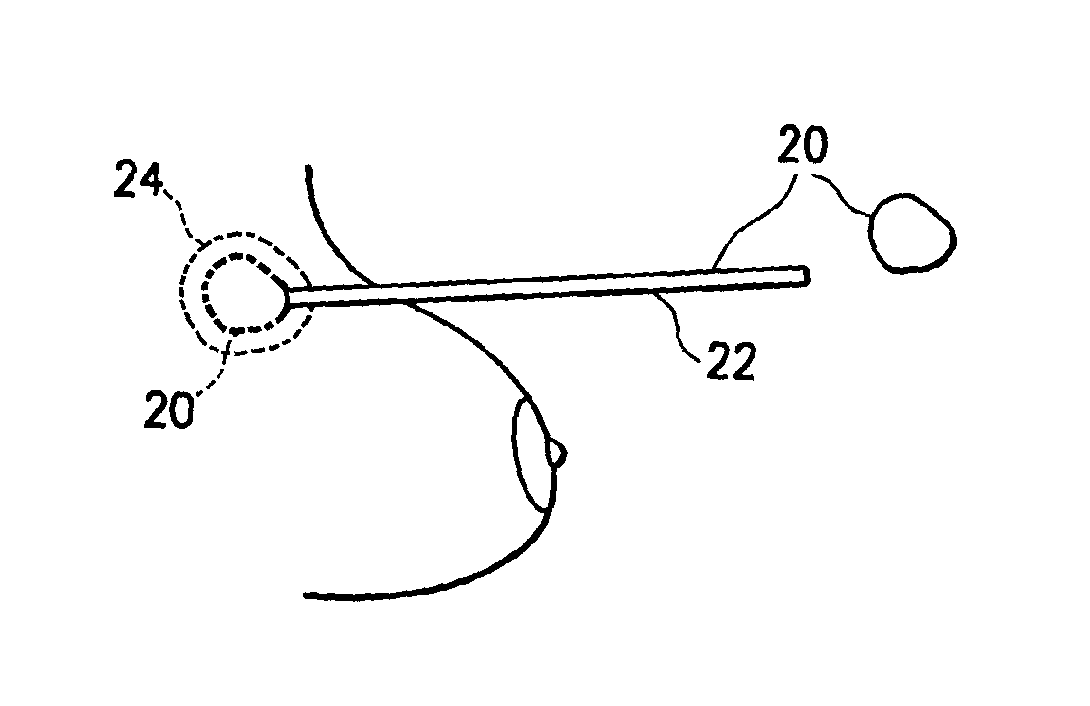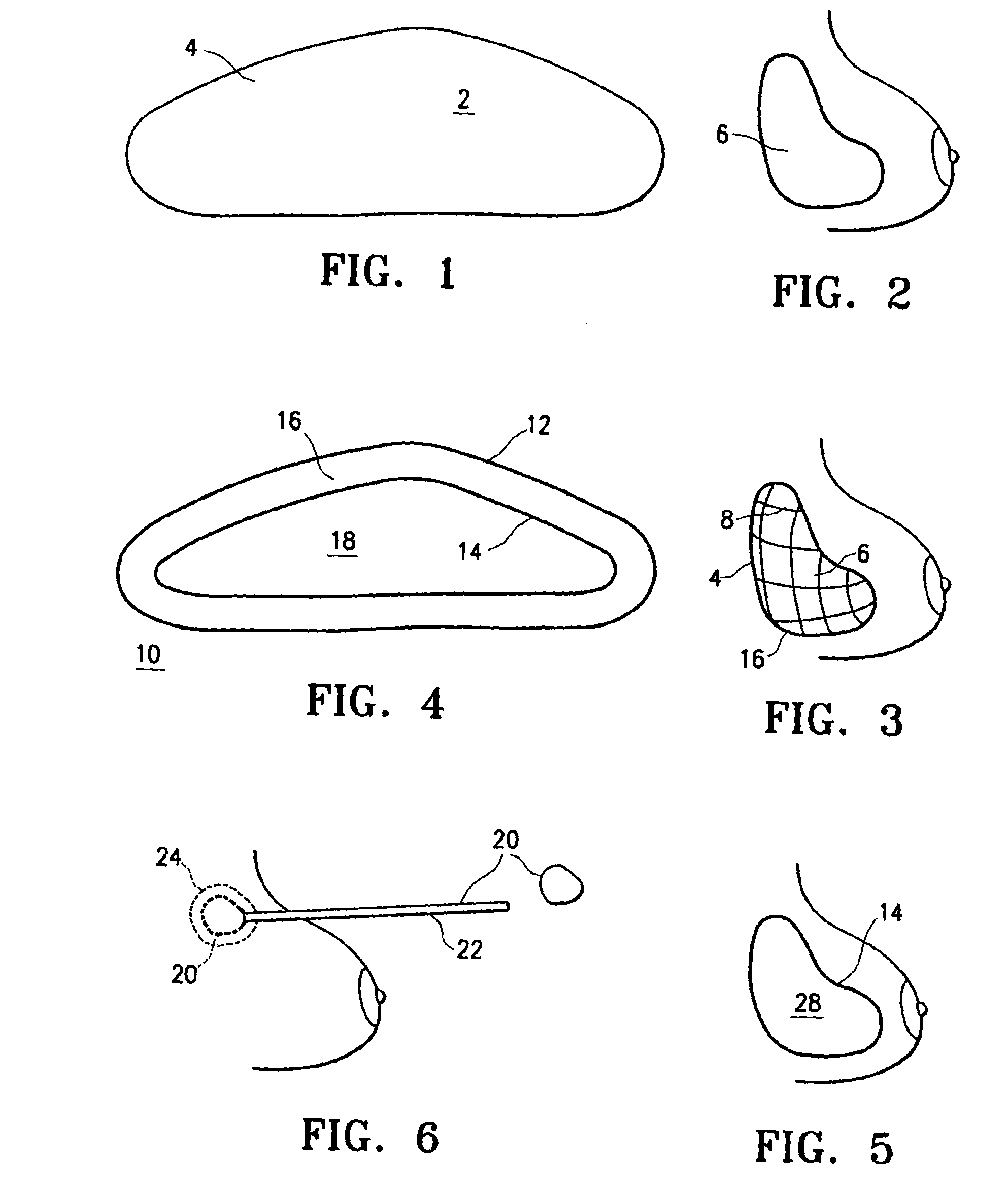Tissue marking implant
a technology of tissue marking and implants, which is applied in the field of implantable breast prostheses, can solve the problems of large scarring, large scarring, and large excised tissue in biopsies, and achieve the effect of reducing scarring and reducing excised tissu
- Summary
- Abstract
- Description
- Claims
- Application Information
AI Technical Summary
Benefits of technology
Problems solved by technology
Method used
Image
Examples
Embodiment Construction
[0022]Referring initially to FIGS. 1 and 2, an implant 2 has an outer shell 4 made of a biosorbable material woven into a mesh. The inner contents of the implant are fluids such as saline and autologous blood products.
[0023]Outer shell 4 is made entirely of biosorbable materials, such as collagens or polyglycolic acids, for example. Over a period of approximately three weeks to six months, the outer shell dissolves, leaving the inner contents 6 present inside the breast. Hard encapsulation will not occur because there is not a foreign body contained within the prosthetic space.
[0024]Referring to FIG. 3, implantation of an alternative embodiment of implant 2 is illustrated in which the outer shell 4 includes both biosorbable material, and nonabsorbable material, such as monofilament polypropylene fibers. Outer shell 4 is provided as a mesh or weave of the mixed material, surrounding contents 6 as described above. After a resorption period, contents 6 remain surrounded by a skeletal o...
PUM
| Property | Measurement | Unit |
|---|---|---|
| size | aaaaa | aaaaa |
| structure | aaaaa | aaaaa |
| volume | aaaaa | aaaaa |
Abstract
Description
Claims
Application Information
 Login to View More
Login to View More - R&D
- Intellectual Property
- Life Sciences
- Materials
- Tech Scout
- Unparalleled Data Quality
- Higher Quality Content
- 60% Fewer Hallucinations
Browse by: Latest US Patents, China's latest patents, Technical Efficacy Thesaurus, Application Domain, Technology Topic, Popular Technical Reports.
© 2025 PatSnap. All rights reserved.Legal|Privacy policy|Modern Slavery Act Transparency Statement|Sitemap|About US| Contact US: help@patsnap.com


